
OR
Opinion
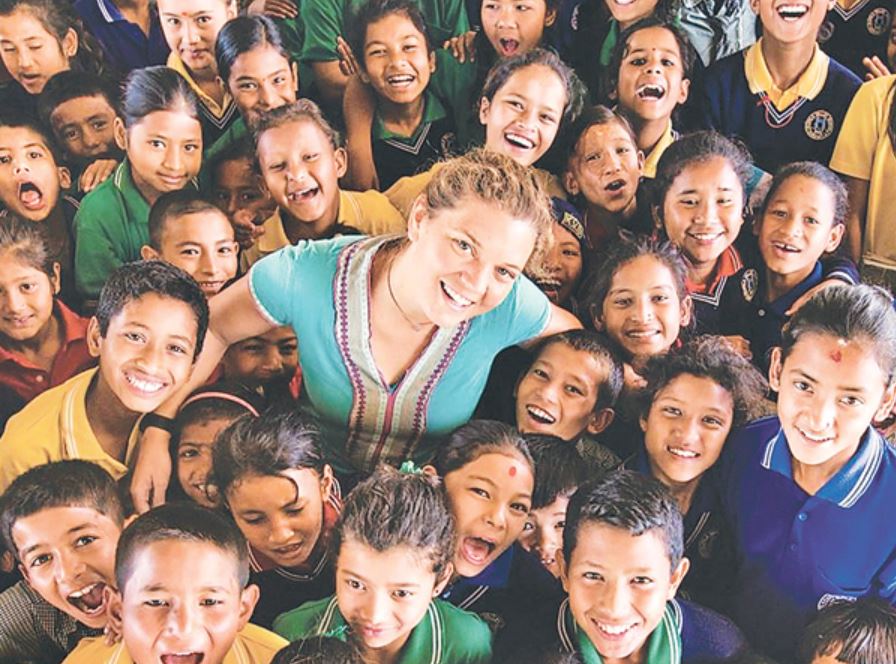
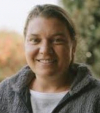
Maggie Doyne
The author is Co-Founder and CEO of BlinkNow Foundation and Co-Founder of Kopila Valley Sewa Samaj.news@myrepublica.com
More from Author
Together, we're trying to work on changing the narrative of what Karnali is and what Karnali can be
I am so honored to open this beautiful day and share a little bit about my story and my journey with all of you. First, I want to thank the organizers, the founders for making this possible, for putting our Karnali region on the map, and including me and humbling me with an invitation to speak and be your keynote speaker. So I wrote a few notes, and the title of my little talk I'm about to give is about the journey from New Jersey, where I grew up, to Karnali and to Nepal. And just to tell you kind of, like, the very short version, when I was 18 years old, I had the extreme, extreme fortune and privilege of getting to travel for a year. It was called a gap-year program, and I didn't know what I wanted to study or where I wanted to go to college, or I'd never really left New Jersey where I'm from. It's like a very small suburban town. I went to school. I played sports, but I just didn't know what I wanted to do, what I wanted to study. So I signed up for something called a gap year.
Having no idea about Nepal, where Nepal was. I couldn't have placed it on a map. I didn't know what was happening. In fact, I really just wanted to travel for the adventure and fun of being eighteen. All of that changed when by accident, I ended up in Northeastern India. And to really understand Nepal, it was such a gift to start the journey on the Indian side of the border where there is a huge culture of Nepal and a huge community. And to truly understand the Nepal experience is to understand the experience of the migrants. And in 2005, it was the refugee as well. And, of course, when we all know about Nepal and get to meet Nepali people, we noticed something very, very special, and I definitely did. And so I got to come to Karnali for the first time at the age of 19 with a lot of questions. I wanted to know so many things, like why is everybody leaving Karnali. Everybody I met in Northeastern India working really difficult labor, having fled really difficult situations, talked about Jumla and Humla and Kalikot and Dailekh, and I really wanted to see that and experience it with my own eyes. So I was very lucky. A kid coming from suburban New Jersey to Northeastern India and then to Karnali, of all places. I didn't start in Pokhara. I didn't start in Kathmandu. I came right through Nepalganj straight up, and, of course, the bus stopped at that time in Surkhet because we had our little bus station. It was a trading post type of pit stop. And I'm so, so grateful to have landed here in this place, to have gotten to go and see the beautiful Karnali region, and to have fallen truly, truly, truly in love.
I love this place. I call this place my home. I'm raising our family here. My team is all here. Some of us from Karnali, some of us from around the world, some of us from other places in Nepal. And it's been a journey of questions, of learning, of failing, and trying again, but always, always, always believing in the beauty and the love of Karnali. One thing that makes me really, really angry is that when you're outside of Karnali people say, you're there? In Karnali, why are you there? Like, isn't it the jungle? Isn't it backward? It's the backward place of this country. And I've heard the word backward so many times. Poor, backward, backward. And I noticed in the last couple of years, especially in the development sector, of feeling this anger and this defense. Because anyone who's been to Karnali knows that this is not a backward place. It is a place of so much love and so much magic and so much beauty. And when you travel to all of these beautiful districts and you start to meet people and you start to hear their stories and you ask them, what do you dream of? What do you want? Everybody says, I want a future for my children. I want opportunities. I want jobs. I want to take care of my family. I want to take care of my parents. And to me, that is the most beautiful thing and the most forward thing. And so together, we're really trying to work on changing the narrative of what Karnali is and what Karnali can be.
I'm 37 years old now, so I've spent half my life here, about half and half, and we continue to learn and continue to explore and continue to imagine. And, it's been really hard. It's been really difficult. We got to see Karnali back in 2005 when we were recovering from a civil war. I got to be here when there were tires burning in the streets and conflicts. I've gotten to be here through times of peace, through times of strife, through times of watching Karnali become the provincial capital and that announcement that was being made. We got to watch Midwestern University and our provincial hospital come along and our roads be paved. And when you're kind of like the ones that are here, you also feel this sense of, again, like, defensiveness. Like, don't just pave over all of our roads, don't turn anything into concrete, don't cut down every tree, don't throw plastic in every beautiful valley and river. So I've found myself kind of turning into a Surkheti, like fighting for what Surkhet can be. They asked me to speak in English today, but also to weave in a little bit of Nepali. And, I'm gonna tell you about the first words that I learned when I was learning Nepali. So the first word that I learned that I was always hearing was Chaina, Chaina, Chaina, Chaina (don’t have). And I'm American, so I thought, why are they always talking about Chaina? And all I heard was Chaina. And then I remember learning the word, Ekchin, Ekchin (just a minute). But I thought they were saying “Action, Action. Action” and, another thing that I learned early on, Maili (middle daughter). I'm Maili Chori. And when you tell people you don't have a brother, it's like a huge deal. We grew up with three sisters. And I learned how important it is to have a brother, how you're defined by how many brothers you have and whose daughter you are. That was something really interesting. And, yeah, over time, I learned about the Tharu people and the beauty of the culture here. I learned from our mountain folks that whether you're from Jumla, Humla, Kalikot, or Jajarkot, all of the different nuances of culture, religious beliefs, just richness. And I realized that there is so much richness here, so much so much culture, so much nature. And I want people to see that part of Karnali, that part of this place. And, I want us as folks living and devoted to Karnali to fight to preserve it.
So I am very much a work in progress. Like, I'm not perfect. I started when I was really young, just 19 years old. Now, I am 19 years older, and I think, oh my gosh. I was such a baby. But I think the power of being really young is that, you know, you don't know anything. Like, I don't have all the answers. And I've really tried to guide with that unknowing. Okay, I don't have the answers, but what questions do I have? And I really think in a place in education where everybody wants answers, answers, and answers, the right answer and being right, I've really tried to guide myself in asking just questions. Like, are we okay with just sitting with a question? Some of the questions guided me in my life and on my journey to Karnali a lot more than the answers. The first question was, why is everyone leaving Karnali? I want to know that. I want to understand it. And then the second question was, why do we have children breaking rocks on a riverbed instead of going to school? And then the third question was, why are we hitting kids, like in the classroom, in the learning environment? And each of those questions kind of guided us, my cofounder, Top Malla and I, and our community on a journey to, like, working towards solutions. Not answers, but solutions. And just slowly, slowly, slowly over time, you realize that by digging into the question, you start to chip away at something, and you learn by doing. We started with no money, no land, and, slowly, kind of over time, by leaning into the questions, building something that we believe in. And I still want to tell my children, you're not ever going to have all the answers, but it's really important what questions you're asking.
I want to talk about our Kopila Valley children who now go to Kopila Valley School, and I invite you all to come and see this beautiful, beautiful place. It's a school, again, that was guided by questions. How do we build a school that generates its own energy that conserves its water, that's earthquake resilient that has respect to the land, respect to the earth? How do we create a model school? How do we give quality education to the kids who are the neediest? And through that journey, we started to build Kopila Valley School, which is my heart. It's my heaven. It's everything my dreams are made of. And I think a lot about I'm only 37. It's still young, but I think a lot about, if I go tomorrow, what are the things that I want my kids to say about me? I use this as kind of like a guide, like, what do I want my kids to say about me when I'm not here? And how will their values live within the culture, within the school? So this is what I hope my children say about me. I hope they say, oh my gosh, she was so grumpy until she had her coffee in the morning. She hated plastic. She fined people a hundred rupees every time she saw a plastic bag, and she shook people down until she got it. She rode her bike everywhere. I mean, Surkhet, we could be riding bikes everywhere. We could be like Amsterdam and the Netherlands and Denmark. It's so flat here, and I want my kids to say, She rode her bike everywhere she went, and I want them to say she always stopped for a hug. No matter what, how busy she was, she always stopped and gave a hug. She loved babies, and she hugged every single kid she saw. No child is a lost cause or somebody to give up on. Every child has potential. Every child deserves the best. Every child deserves safety, education and love. I want them to say that I always danced with them, and I always danced, and I always made sure dance and music were a part of our journey. She never missed a soccer game, and she was always screaming and yelling and fighting on the sidelines as a soccer mom. And I want them to say that I fought for every single tree in Surkhet, every single tree. I mourned the loss of everyone that was cut down. I cried. I want to be known as a fierce protector of trees. And I want us to remember in Karnali the butterflies, the birds, the ladybugs, our earthworms, our soil, that we don't need to put concrete everywhere. I really love that about this place, and our birds, and our nature, and our access to the mountains. And I think we can all just remember to play. I get to live a life surrounded by children. That's the life I want to live because I think children always remember to play. They have this lightness. They have this joy. They laugh hundreds of times a day. And I think by staying with children and staying in a place of being a child, we get to keep that with us, and we have so much to learn about our children of Karnali. They have so much to teach us, and we need to be more like them. They don't need to be more like us. We need to be more like them. We need to learn from them. We need to be like them. And we need to create a world that's for them, that centers around our children. We can all agree on this one thing, and that is that children deserve love, safety, and having their basic human needs and rights met.
So I just want to end with, we all get to make choices about our life. I'm really lucky. I've gotten a lot of choices in my life. I get to choose to live in Karnali, choose to raise my family here. Some of us get choices, some of us don't get many choices. But I think it's really important that when we do get a chance to choose something, we choose love, and we choose integrity, and we choose the right thing. And I think more than anything else, I really hope that Karnali remembers to choose love, choose riding your bike, you know, choose doing something more sustainable, choose children, choose joy, choose laughter. When you have that ability, choose the good things, choose the loving things. And I really, really hope that our children carry that legacy forward for Kopila. I love Karnali so much, and I'm so grateful my book is here. It just came out in Nepali and in English. It's called Between the Mountain and the Sky, and it is a love letter to Karnali, to Nepal. I hope you find a little piece of wisdom and kind of my own values and our story. And, we invite you, all of you, to come to Kopila Valley School, take a piece of inspiration, and learn with us and grow with us and continue to build a beautiful Karnali in a beautiful Nepal. Thank you all so, so much. Thank you, Karnali Utsav. Have a wonderful day, and Namaste.
This is an edited version of the keynote speech delivered by the author at Karnali Utsav:Kuda Karnalika on February 19, 2024.
You May Like This

'Representative from Karnali should be appointed Chief Minister of Karnali province'
KATHMANDU, Jan 6: Lawmakers elected to the House of Representatives and Province Assembly from Kalikot district have demanded that the... Read More...

Karnali continues to be neglected even in federal Nepal: Kunwar
JUMLA, Dec 31: Minister of State without portfolio Goma Kunwar has said that the neglect towards Karnali continues even after... Read More...
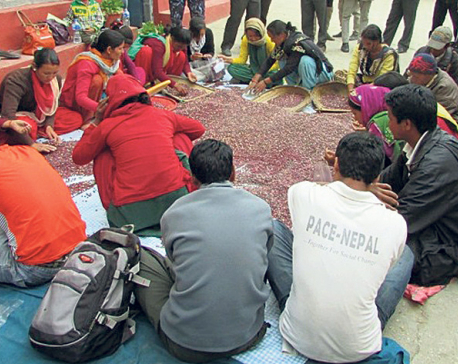
NFC starts buying beans, buckwheat in Karnali
JUMLA, Jan 14: Nepal Food Corporation (NFC) has started buying beans and buckwheat from farmers in Karnali. ... Read More...


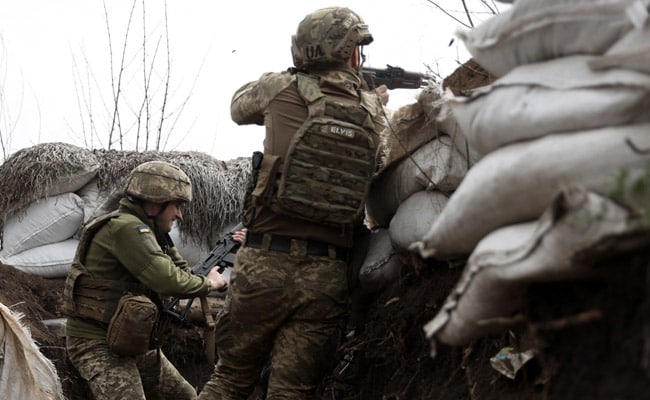

Just In
- Nine youths from Tanahu allegedly joining Russian army out of family contact for months
- West Indies 'A' sets Nepal a target of 205 runs
- Parliamentary committee directs govt to provide electricity tariff subsidies to cold storage facilities
- Former DoTM employee Bhatta arrested in connection with illegal license issuance case
- One killed in a fire incident in Dadeldhura
- JSP Central Executive Committee meeting being held today to discuss national convention representative election guidelines
- KMC adjust office hours, services now start at 9AM
- Five-match T20 series: first match between West Indies 'A' and Nepal starts today










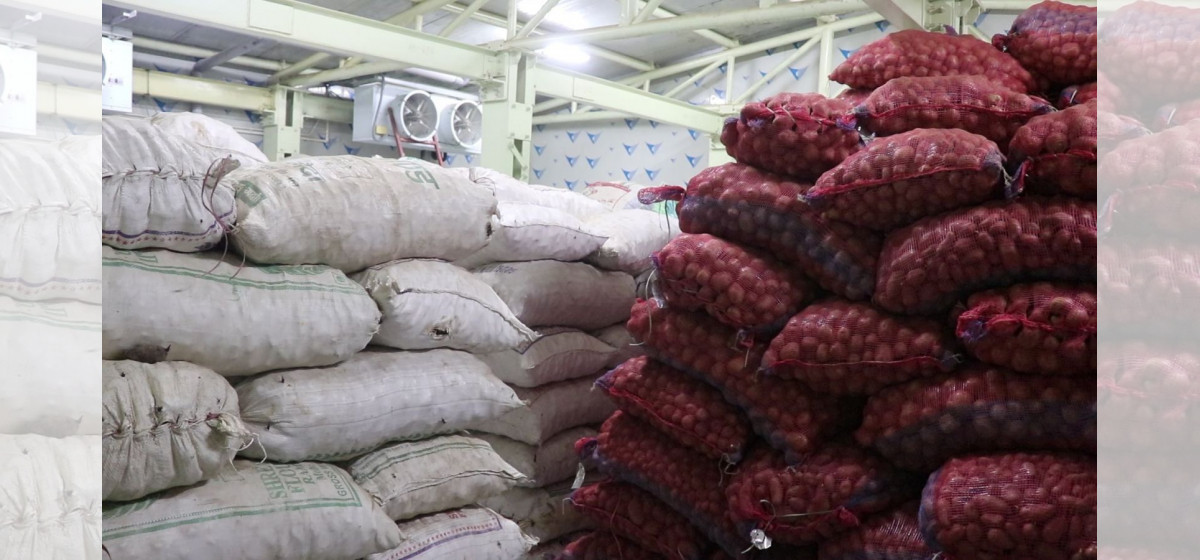
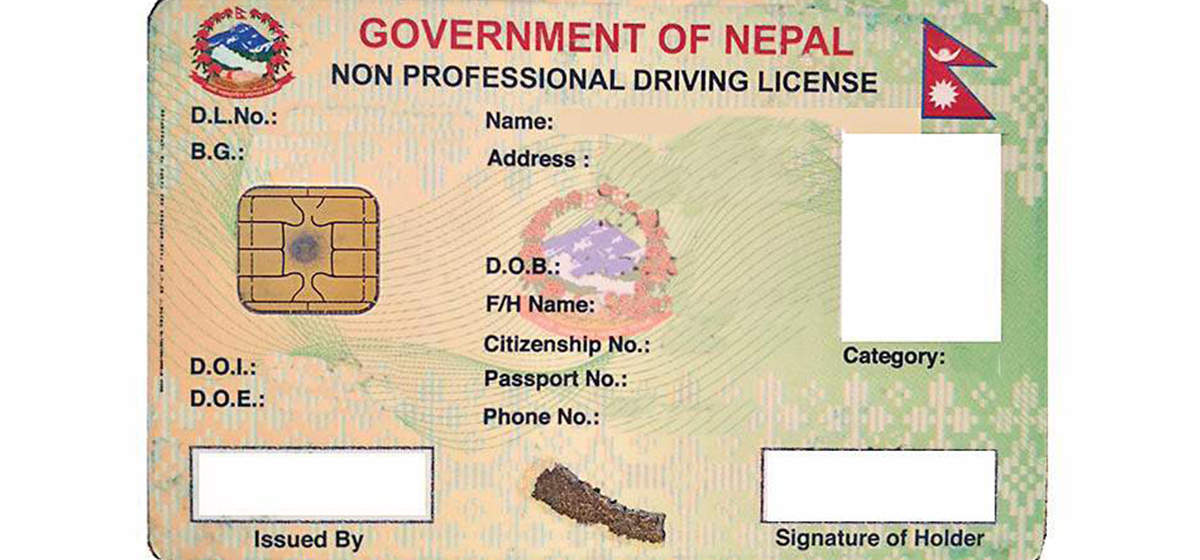
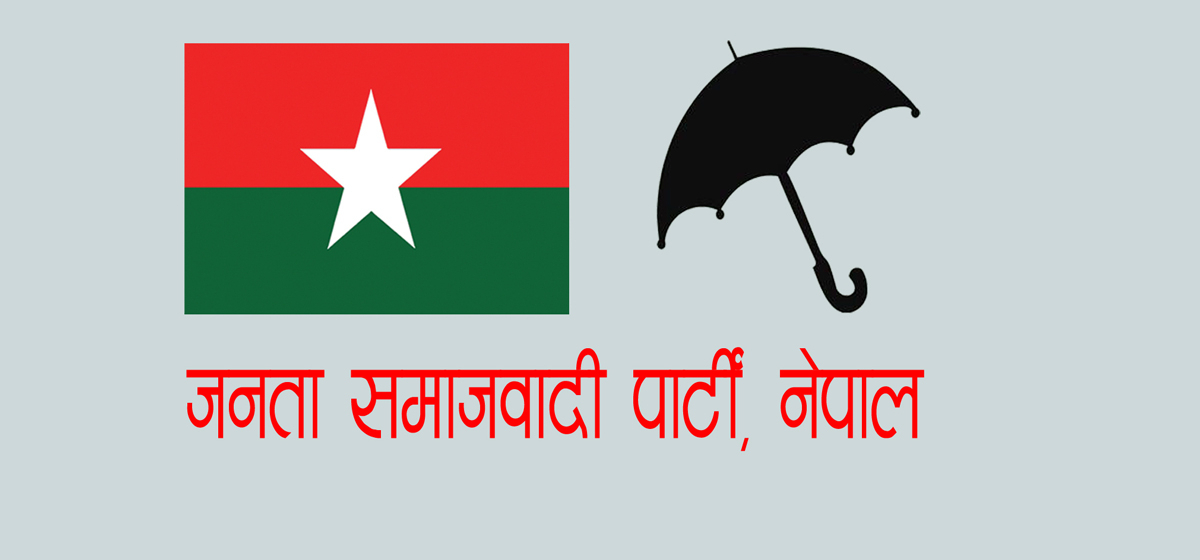

Leave A Comment